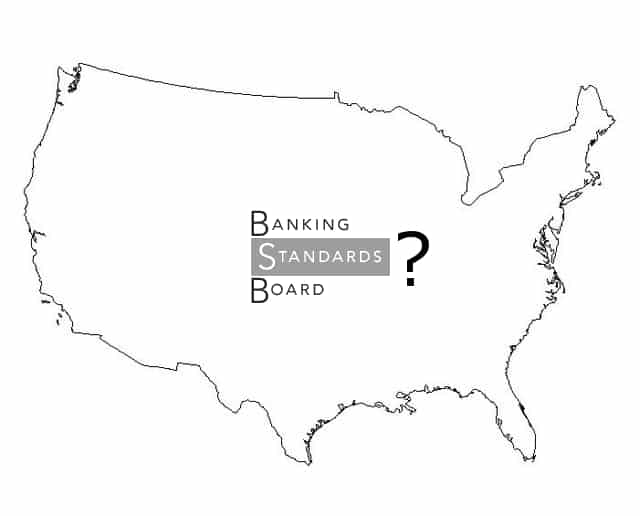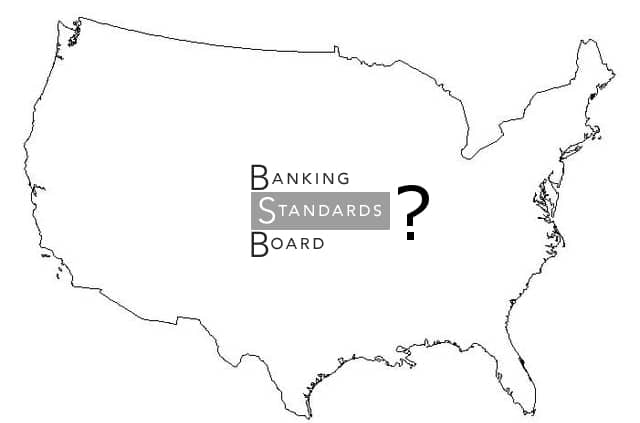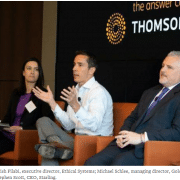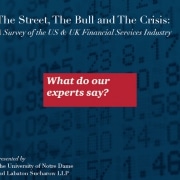The UK’s Banking Standards Board: Should a US model follow?
 I recently returned from a trip to London, where I spoke about the role of ethics and culture in organizations with varied, leading professionals. My meeting with the Banking Standards Board (“BSB”) stands out as a potential model for self-regulation that financial services firms in the U.S. could emulate.
I recently returned from a trip to London, where I spoke about the role of ethics and culture in organizations with varied, leading professionals. My meeting with the Banking Standards Board (“BSB”) stands out as a potential model for self-regulation that financial services firms in the U.S. could emulate.
The BSB is a non-profit organization, established by the industry in the wake of the 2008 financial crisis to address core challenges relating to the culture of banking, and help restore the industry’s trust and reputation.
To raise standards of behavior in financial services, the BSB began with a comprehensive analysis of the current standards for culture, the details of which are provided in their 2015 assessment report, identifying themes relating to norms within the banking industry. After conducting assessments at individual firms, and extrapolating common themes, they plan to use these as the framework for future work plans. This assessment creates a baseline so that firms and the BSB can then measure the impact of reform efforts, both internal ethics programs and industry and regulatory initiatives, over time. As I’ve written in previous blog posts, evidence-based ethics research and culture measurement are key to determining what works to drive more ethical behavior in organizations. In order to improve culture, researchers need to help firms better measure their culture and track changes in indicators over time. The BSB has taken a vital step towards this goal.
Although it is a young organization, having launched in April 2015, there are several factors that I believe will lead to the BSB’s long-term success (in addition to their talented staff):
1. Broad participation: It’s founding members are the UK’s seven largest banks and building societies (Barclays, HSBC, Lloyd’s, Nationwide, RBS, Santander, and Standard Chartered), and since its inception its membership has grown to 33 firms, including US firms with UK operations, such as Citigroup and BNY Mellon. Broad participation is important because one oft-repeated rationales about the difficulty of promoting ethical behavior in finance is that it can put an individual firm at a disadvantage in a competitive environment – thus, the entire industry needs to be in it together.
2. A diverse Board, and commitment by senior industry leaders: The BSB’s 14 member Board of Directors is comprised of both financial services executives and non-industry professionals, providing an even divide in perspectives and systems of accountability. The commitment from financial services practitioners is necessary for culture change to “stick.” Intrinsic motivation is a key component of behavioral change, and that begins with self-critical assessments and understanding. The non-practitioner leadership is equally important to ensure accountability and new perspectives.
3. Parliamentary and public pressure: The BSB grew out of a parliamentary report recommending that the industry create a professional body to raise standards for conduct and behavior at the firms. In response, the seven largest firms in the industry commissioned Sir Richard Lambert to conduct a study and develop recommendations for an organization and structure that could address their challenges. The BSB is the result and all eyes are watching.
Back stateside, since 2014 Bill Dudley, the President of the NY Fed, has urged the industry to develop a comprehensive assessment approach so that benchmarks on culture and conduct can be established, and common practices and approaches shared among the sector. “Having a common survey instrument would promote benchmarking of, and accountability for, progress on culture and behavior,” he stated.
Why have US financial institutions not had a response similar to those in the UK? It’s notable that some of the firms that are members of the BSB are US firms with UK operations, and are assessing their firm’s culture in those subsidiaries under the framework of the BSB. I’m unaware of them taking a similar proactive approach to ethical culture in their US subsidiaries — perhaps they are conducting such culture audits internally and confidentially, of which we in the public are unaware, but the vision of an industry-wide response has not yet come to fruition.
The Wells Fargo scandal is just the latest example of financial incentives gone wrong and how an organization’s culture and environment can induce ethical fading in otherwise well-meaning employees. The firm set-up an aggressive compensation system that rewarded the opening of more accounts, and as a result, they got more customer accounts, no matter what the cost to external stakeholders. In response, the OCC is now conducting a horizontal review of financial institutions about their sales practices and the role of incentives in producing unintended consequences.
Instead of playing whack-a-mole with the latest bad behavior that crops up, perhaps it’s time to take a step back and ask how the US financial institutions can emulate their UK colleagues in taking a self-regulatory approach.







